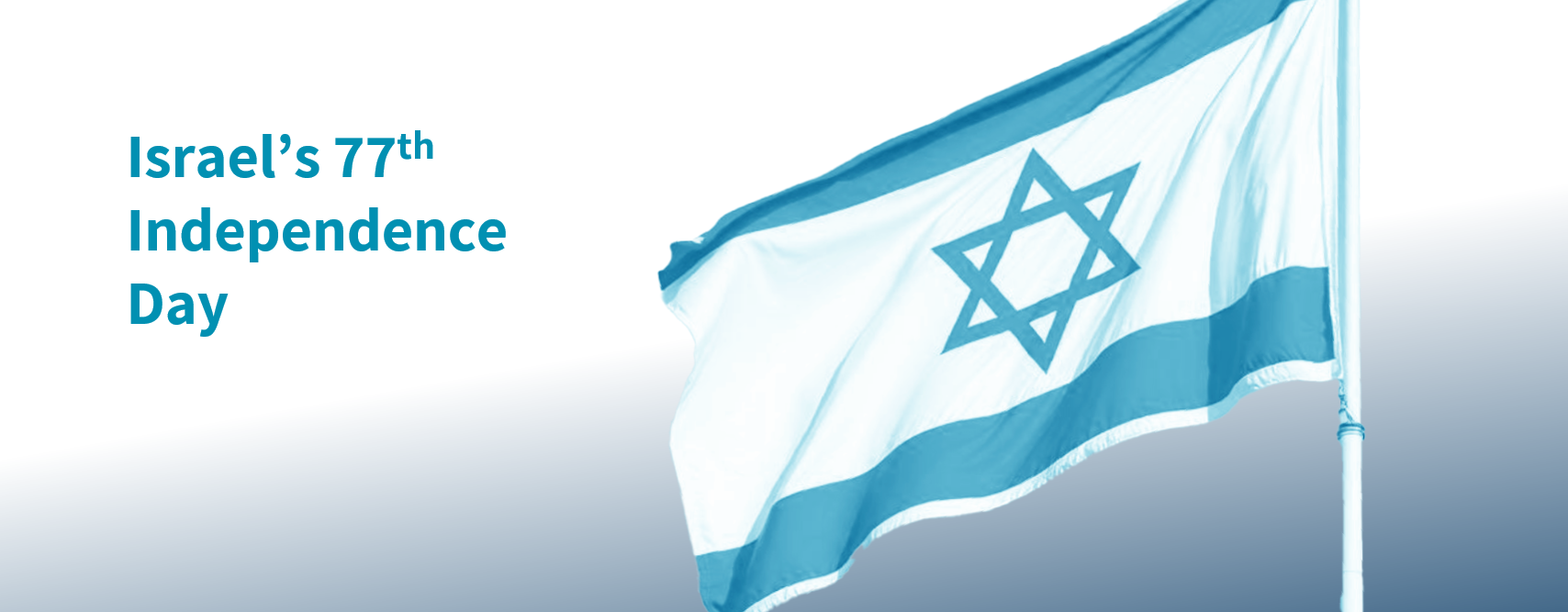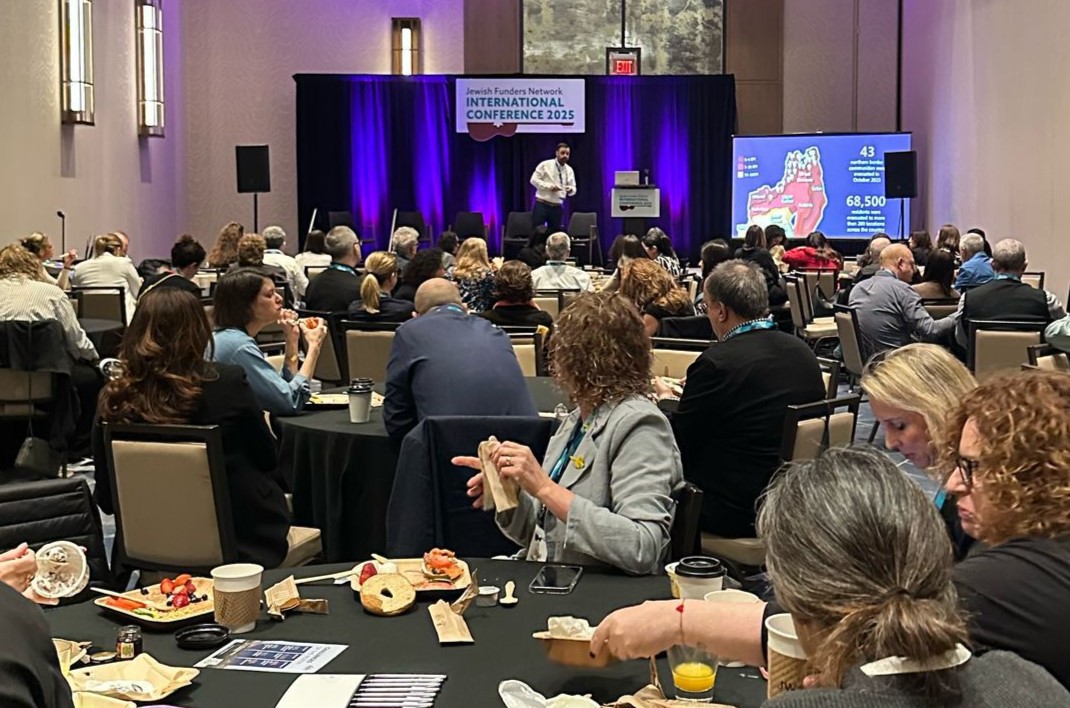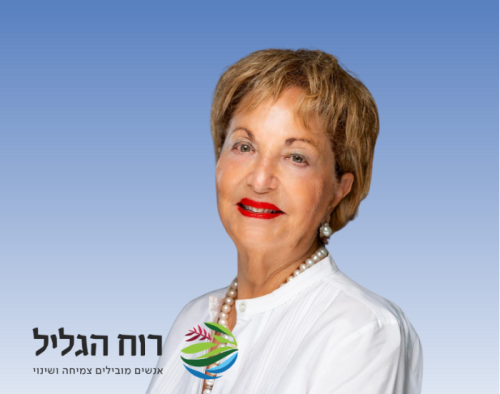
The events of the past year and a half have left a deep scar on Israeli society, particularly on the residents of the north and south. Yet alongside the difficulties, a renewed commitment has emerged: to rebuild social resilience, bridge gaps, and create opportunities for every child in Israel to realize their full potential.
The Rashi Foundation is working vigorously to develop medium- and long-term responses for residents of the periphery, aiming to foster recovery and revitalization. In close cooperation with local authorities and with our philanthropic partners, we plan and implement programs based on growth engines that will ensure sustainable community stability and prosperity.
In these trying times, we choose to also see hope through our work: the opportunity to rebuild a better, more equitable future for everyone.
Marking the Foundation’s 40th anniversary, we will be hosting the Israel Summit for Social Mobility, with the goal of fostering an open dialogue on key areas where change is needed.
Holding the summit shortly after Yom Ha’atzmaut will reinforce the importance of mutual responsibility and of acting in a spirit of true partnership and deep commitment to our future together.
What role can philanthropy play in the restoration of Israel’s Northern communities? How can we support the return of the evacuees and stimulate renewed growth? This was the subject of a special panel and open discussion during the annual JFN conference, led by Rashi together with the Russell Berrie Foundation, Ronson Family Foundation, Scheinberg Foundation and Koum Family foundation.
The session started with the presentation of a report on the crisis among northern residents in terms of education, employment and mental health. The ensuing discussion focused on the need to invest in sustainable infrastructure, strengthening the local leadership, and adopting a region-wide perspective while adapting the solutions to the highly diverse population of the region. Rashi’s CEO Michal Cohen expressed the shared sentiment, saying: “The recovery and the growth of the North are a national mission. This is the new Zionism.”


The physical damage and evacuation have severely undermined social and economic resilience in northern Israel, creating an unprecedented challenge to which we must rise. Rashi has launched several initiatives to facilitate renewed growth in the region, with an emphasis on building economically robust municipalities.
Nahariya is the first city integrating the economic development model of MuniEco, a nationwide initiative to create growth engines that will allow municipalities in the periphery to provide more opportunities to their residents. While the selection of four additional pilot locations is in progress, we have already started working in Nahariya: conducting mapping, building a work plan and identifying potential income-generating activities.
Partners: Spirit of the Galilee, Russell Berrie Foundation
At the same time, a cross-sector think tank that studied insights from disaster events across the world, has led to the establishment of a RecoveryHub for Kiryat Shmona and the Galilee Panhandle – a platform that supports the revitalization of economic activity and the return of businesses. The center provides information, professional consulting, practical support and policy advocacy. It is expected to serve hundreds of businesses, helping to design business plans, ensuring access to government compensation and benefits, and offering loans and incentive grants.
Partners: Kiryat Shmona Municipality, Beyachad Foundation, Russell Berrie Foundation, Jewish Federations of North America (JFNA), EY, the Home Front Command
>Hello Tech, the joint initiative of Rashi and Google to promote AI (artificial intelligence) literacy in the education system, is advancing. Having started as a pilot program in three cities, it is now expanding and being upgraded to reach nationwide impact.
The initiative serves as an “innovation lab” for the development of AI-related content for school students and teachers, led by Rashi’s affiliate, the Cyber Education Center. Tens of thousands of students are already being introduced to the multiple uses of AI in our daily lives, and are gaining skills for success in the future.
For educators – teachers, instructors and principals – the initiative offers tools that harness the power of AI in order to make their work more efficient and to enrich the students’ learning experience. This includes teaching aids and lesson plans in both Hebrew and Arabic that every teacher can access through the Hello Tech website.
Partners: Google, the Ministry of Education, municipalities, Moona Association
Victoria, grade 6 homeroom teacher: “Gemini is my personal AI teaching assistant” >>
Professionals and elected officials in local authorities will be better able to design programs and services for young adults, with a new IT system that was developed as part of the Ma’ale initiative. This is a comprehensive database that serves as a guide to the characteristics, needs and trends among this group, representing an important resource for the community’s resilience and future leadership.
The system contains data regarding education, employment, demographics, etc., which can be analyzed by parameters such as age, gender and so on. It allows users to compare different municipalities and to track changes over time, giving a full picture that supports effective decision-making.
Partners: Gandyr Foundation, Young Adults Authority in the Ministry of the Negev, Galilee and National Resilience
Another venture in this field is ‘Pioneers’ – a joint initiative with the Edmond de Rothschild Foundation. The initiative empowers young adults in peripheral communities by expanding opportunities for higher education and employment and encouraging social entrepreneurship. This will hopefully help stem the migration of young people to the center of the country, which may accelerate in the aftermath of the war. The model will be developed in one southern and one northern community, based on the belief that municipalities are the key to change and that young adults themselves are the drivers of change.
Raya Strauss Ben Dror, President and founder of ‘Spirit of the Galilee’
“As part of the vision of a significant leap forward in the Western Galilee that I am leading, we are working to improve the level of education and provide equal opportunities for northern youth to acquire skills that will enable them to reach high-paying jobs in advanced industries.
I welcome the involvement of the Rashi Foundation in advancing youth in Nahariya. Rashi’s reputation and experience, combined with my own and our team’s deep understanding of the region’s needs, create a strong strategic partnership that will yield results. I am happy and proud of it.”

Members of Rashi’s business forum talk about their social involvement and what motivates them